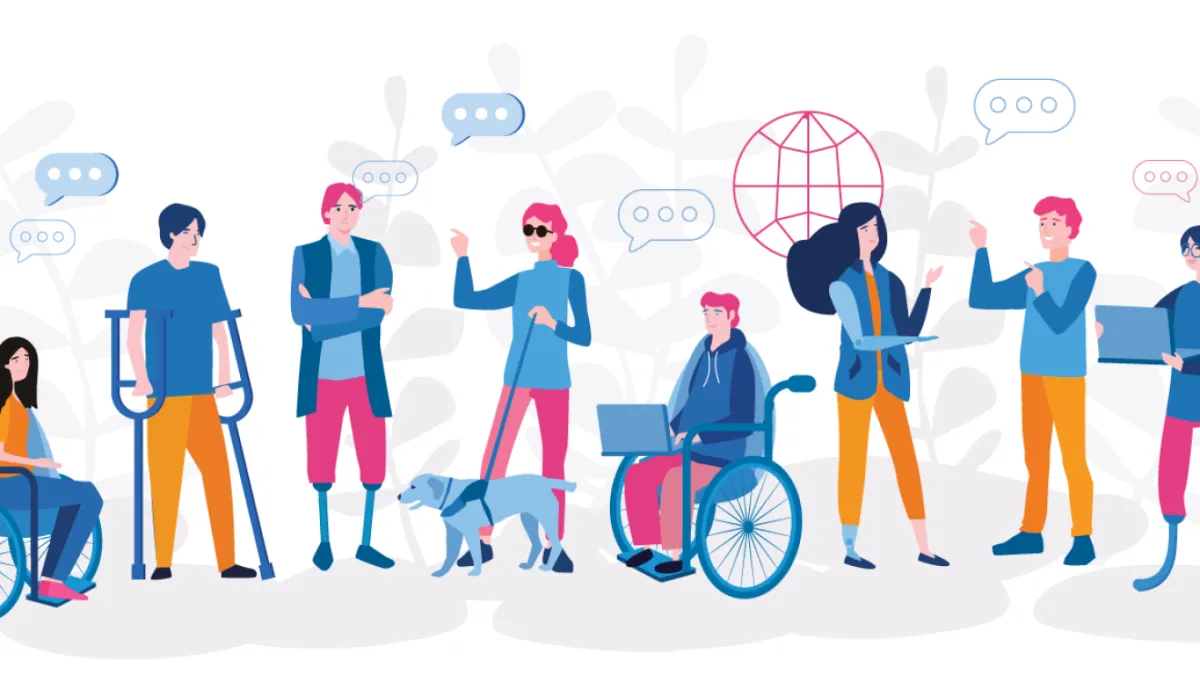Reinvigorating the Business Dream
Learn about business and how to boost profits...

Performance Management for Employees with a Disability
If you are building your dream team, you will have to pay special attention to how you manage team members with a disability. There are many silent and hidden disabilities, so be sensitive to what other people are dealing with.
The first step is to educate both yourself and the other members of your team about the special challenges your team member is facing. Understand the legal requirements of supporting them in your workplace as well as making sure you accommodate your employee’s special needs. If their disability is physical, check that you’re not inadvertently discriminating against them by having a professional inspection of the workspace. Make sure you accommodating the special needs of someone in a wheel chair or with a walker both in terms of access into and around the workplace as well as by providing appropriate facilities for their circumstances.
When appraising the performance of people with physical disabilities it’s important to assess them based on outcomesrather than focusing on limiting your expectations. Whilst team members with a physical disability may be limited in their movements they are valuable assets to your organization that contribute fully to your teams and business success and need to be assessed as such. It is important to avoid positive discrimination or modifying your expectations of their performance based on their disability. This is patronising and devalues their contributions. Your assessment of their outcomes should be the same as you’d apply to an able bodied individual.
Disabilities such as ADD (Attention Deficit Disorder) or Asperger’s Syndrome can be more complicated to manage in some situations. For instance, people with Asperger’s have a very hard time working to a deadline or remembering certain tasks that they are supposed to do. Their ability to focus can make it difficult to manage working to the same timetable as others on your team, particularly when they get very involved in whatever task they are consumed with and forget about everything else. Training and education for managers and team members who work with people that have cognitive or developmental disabilities provides enormous benefits by creating an understanding and tolerance for the differencesin life experience.
Additional management may be required in the form of supportive team mates, clear and easy to access lines of communication and the design of highly structured tasks. Some aids can also help in with job efficiency such as alarms and other reminder systems or stationery with activity cues.
Your team may come to see that these workers as having special rules made just for them and in some manner of speaking this is true, but unfortunately cannot be avoided.
When assessing people with cognitive or developmental disabilities you are again reviewing their performance in terms of outcomes. Whilst you may be inclined to be ‘soft’ in your evaluation of their performance, you are only hindering their ability to improve and add even greater value to your team and business in adopting this approach. Rather you need to take the middle line, you have adjusted the tasks and environment to create the optimum space for these individuals, so it is right that you assess within these parameters their outcomes – quality, timeliness, ethics etc..
When you evaluate the performance of your team, you need to take into account any team member’s disability and not hold it against the other members. Be sure that the person with the disability is given tasks that are appropriate to their abilities and that they are evaluated appropriately. Yes, they will be judged by a different set of criteria than their peers, but be sure there is no secret lurking resentment created among peer team members.
Education is always the key to reducing prejudices. And of course having a positive working experience with people who have a disability will go a long way to removing negative stereotypes about people with disabilities.
Client Success...
Machines4U grows 600% in 2 years!
How DDB Design and Construct doubled their business while taking more holidays
How Joel restarted his business after it came to a grinding halt
© Copyright | Outcomes Business Group | All Rights Reserved | Website Terms and Conditions of Use
